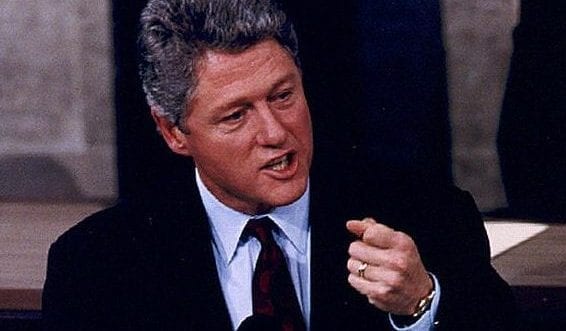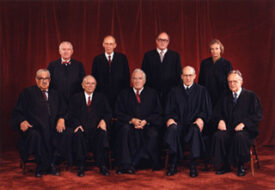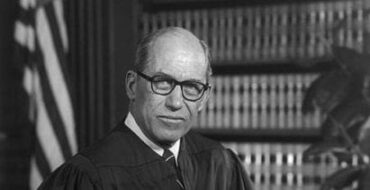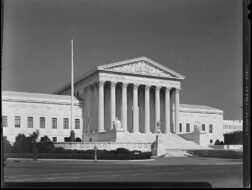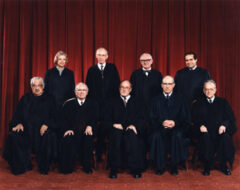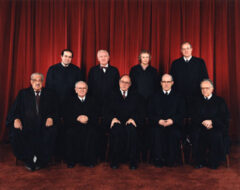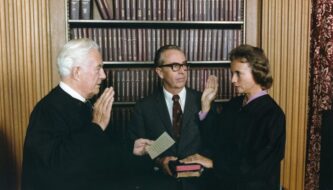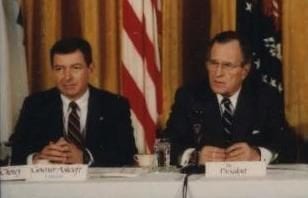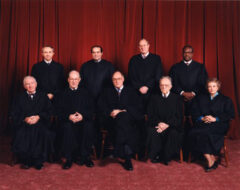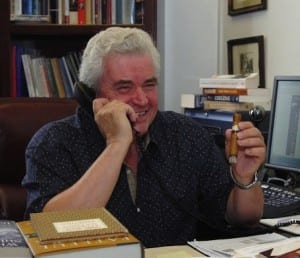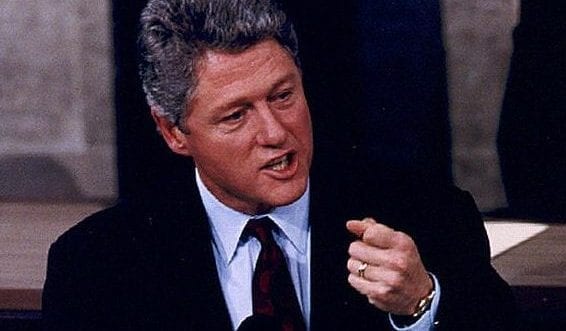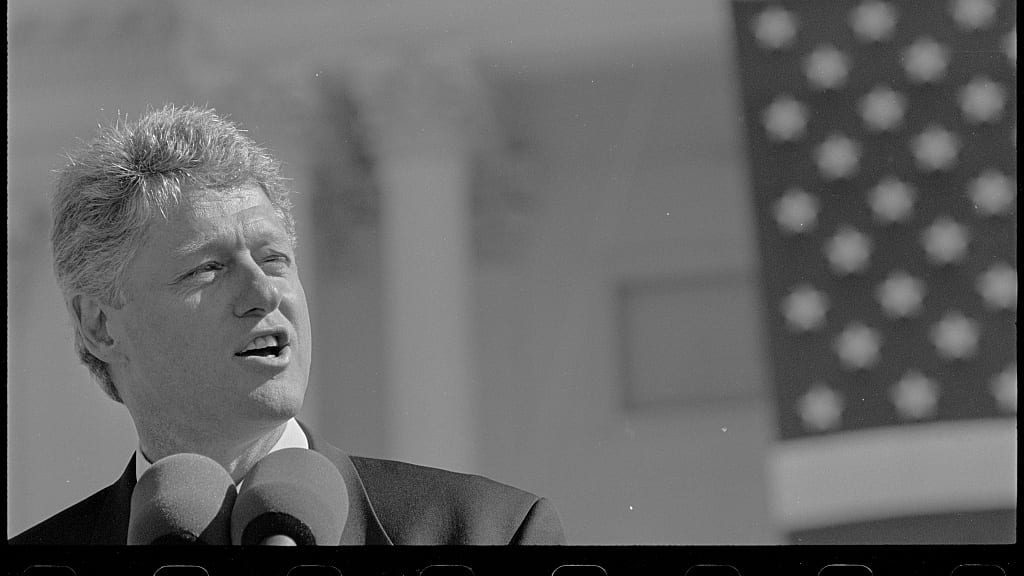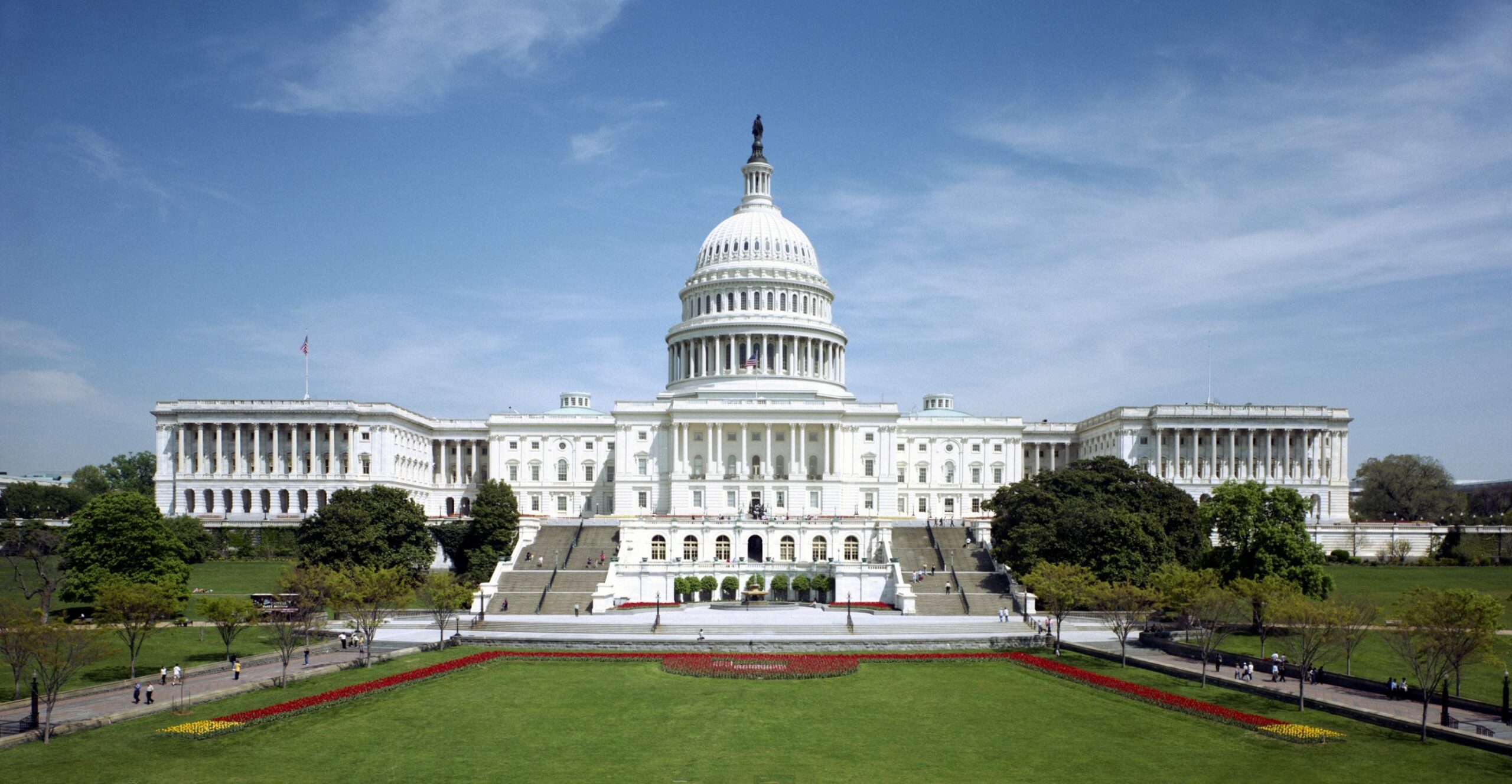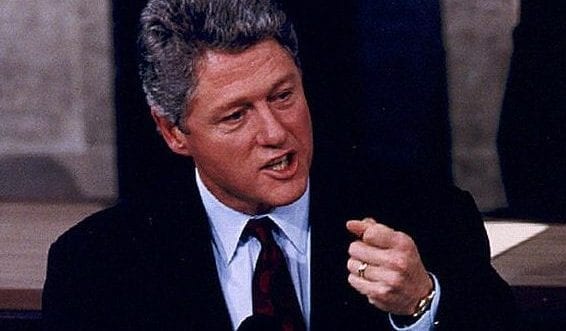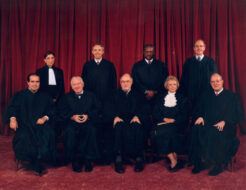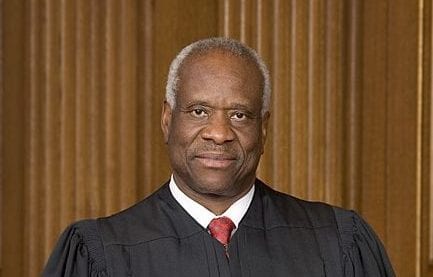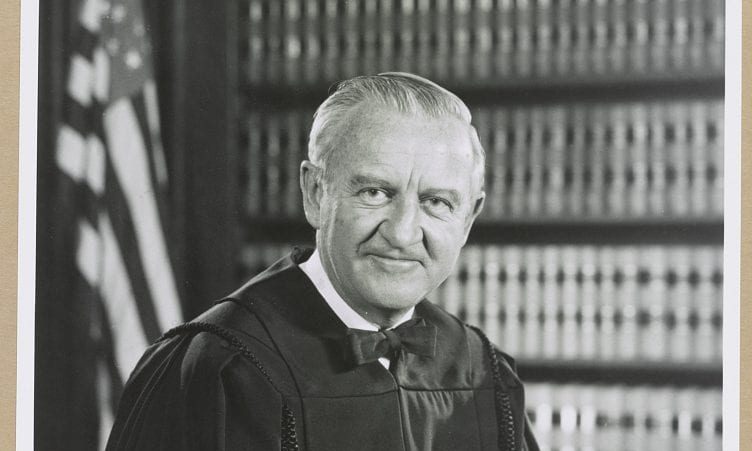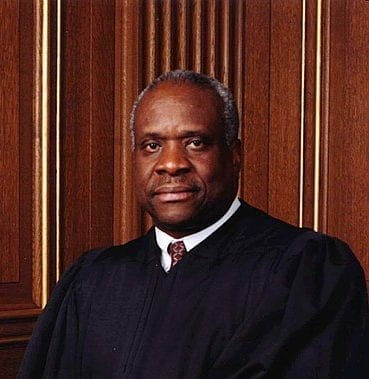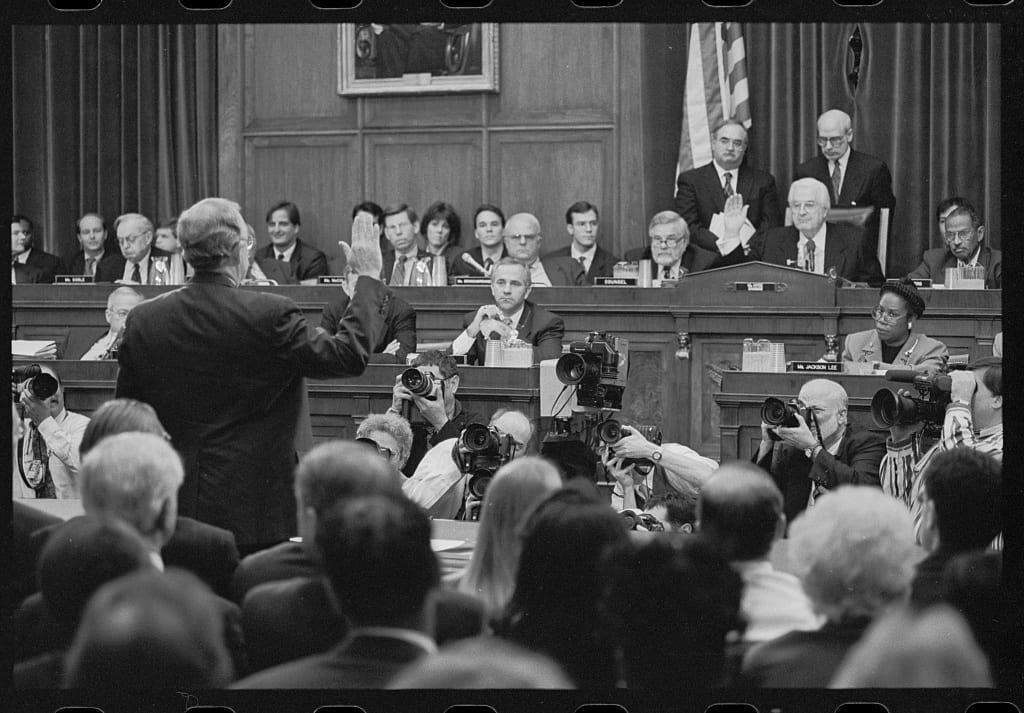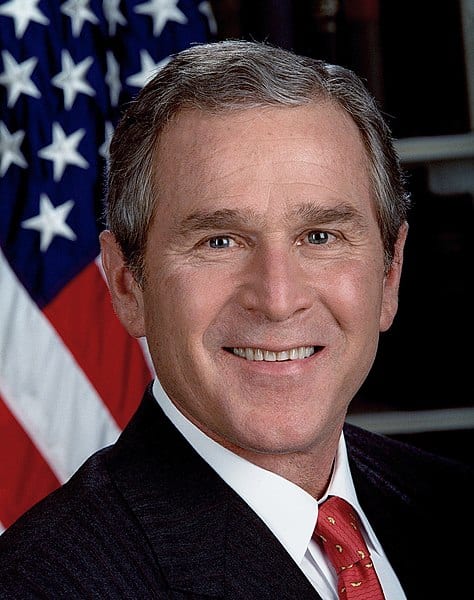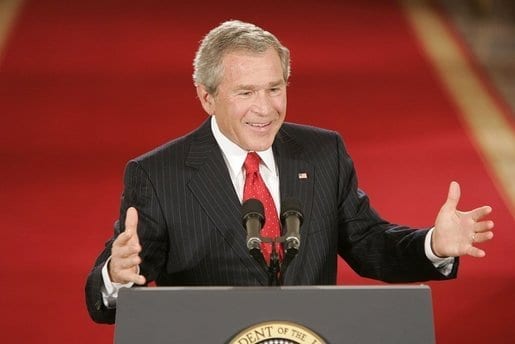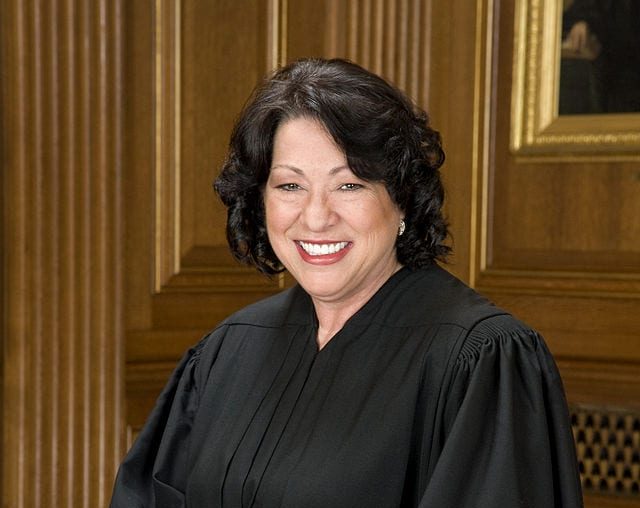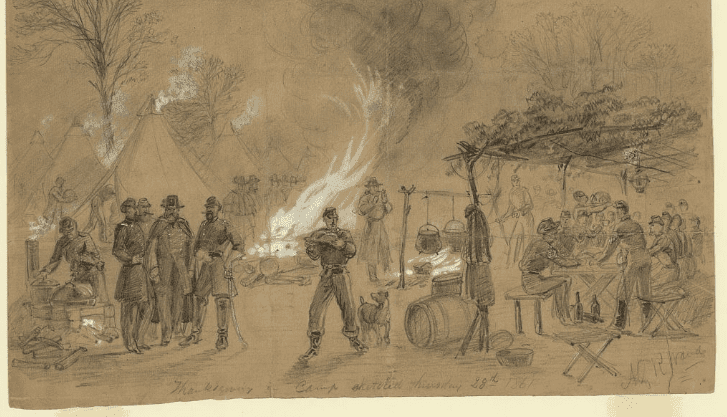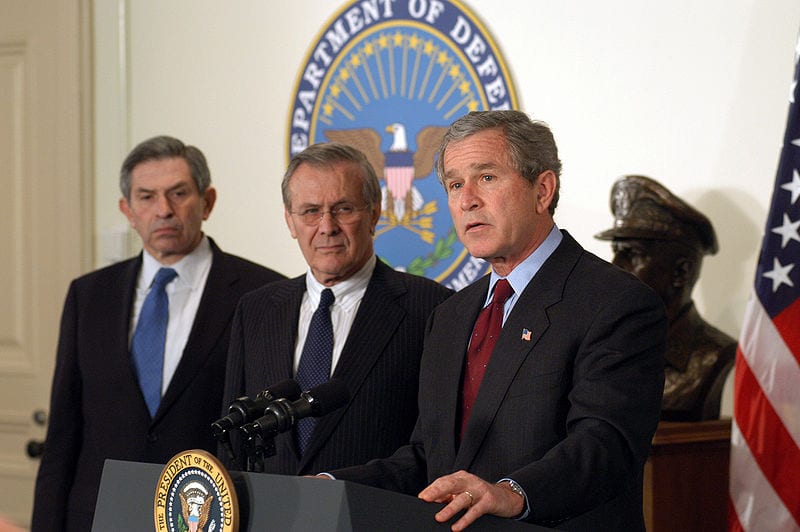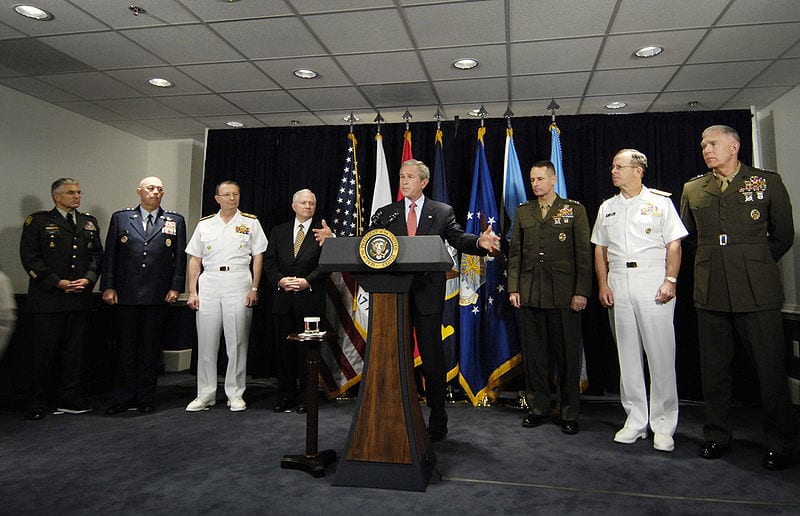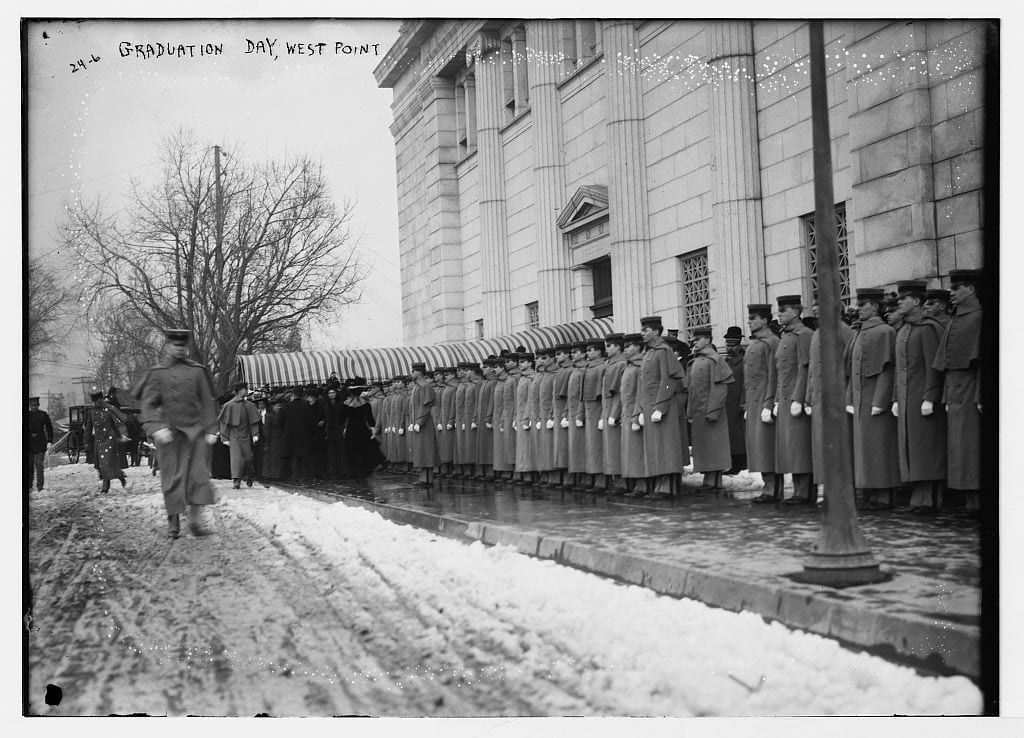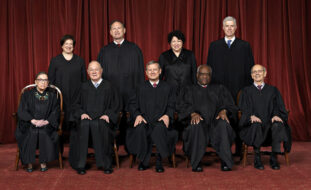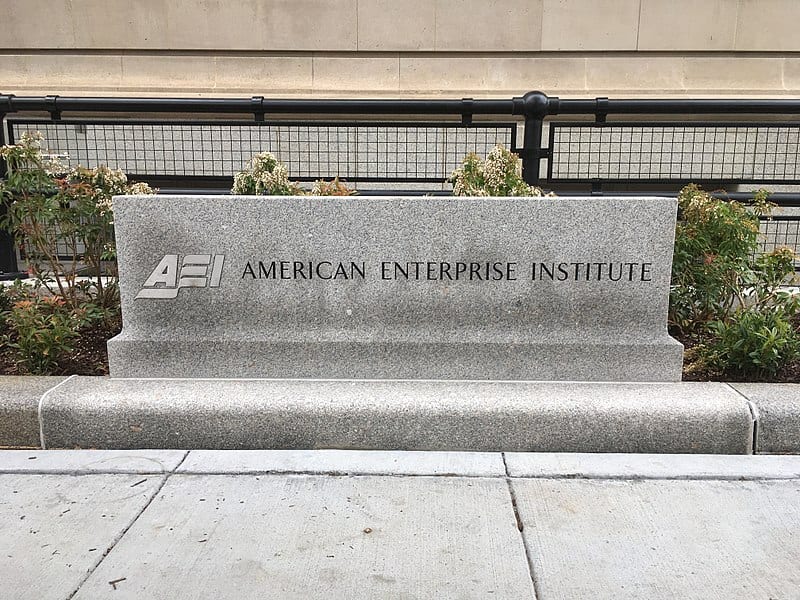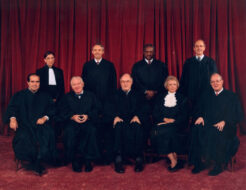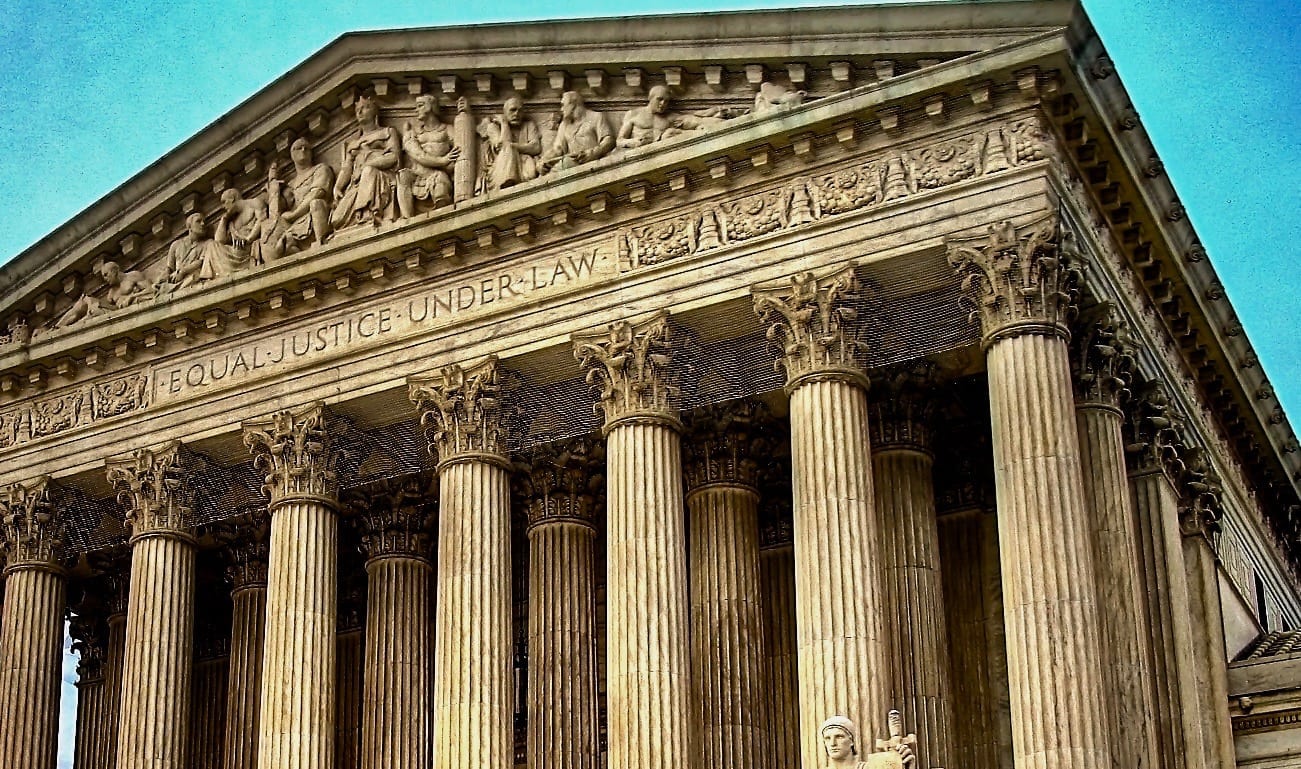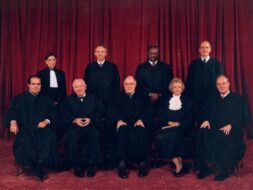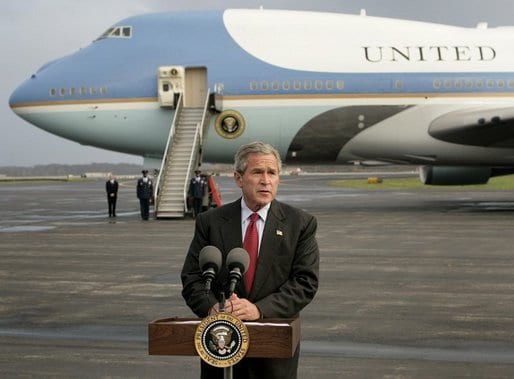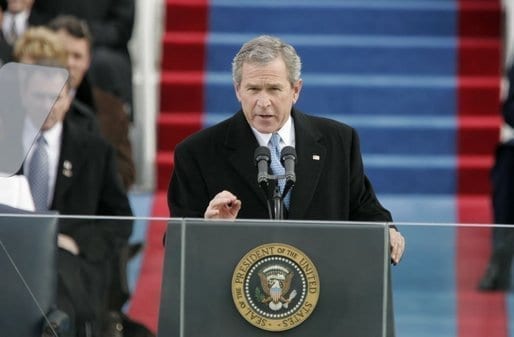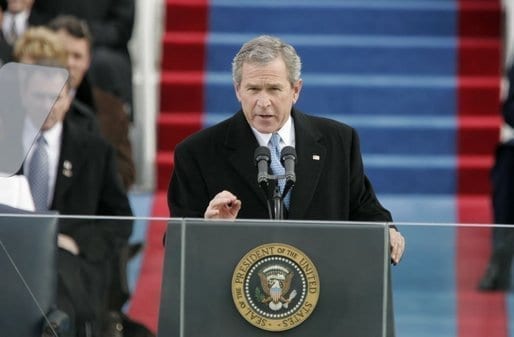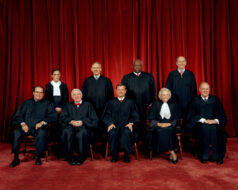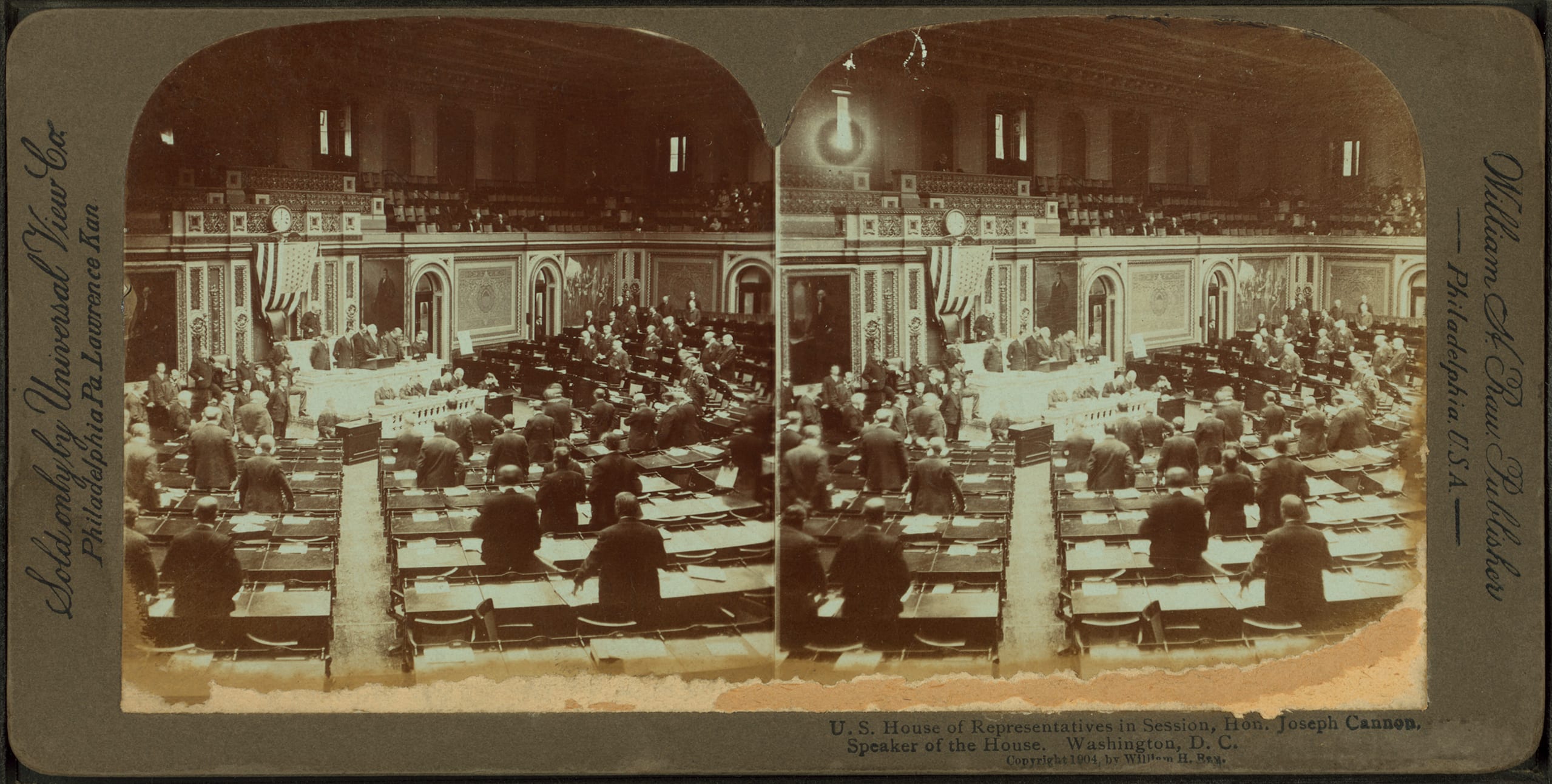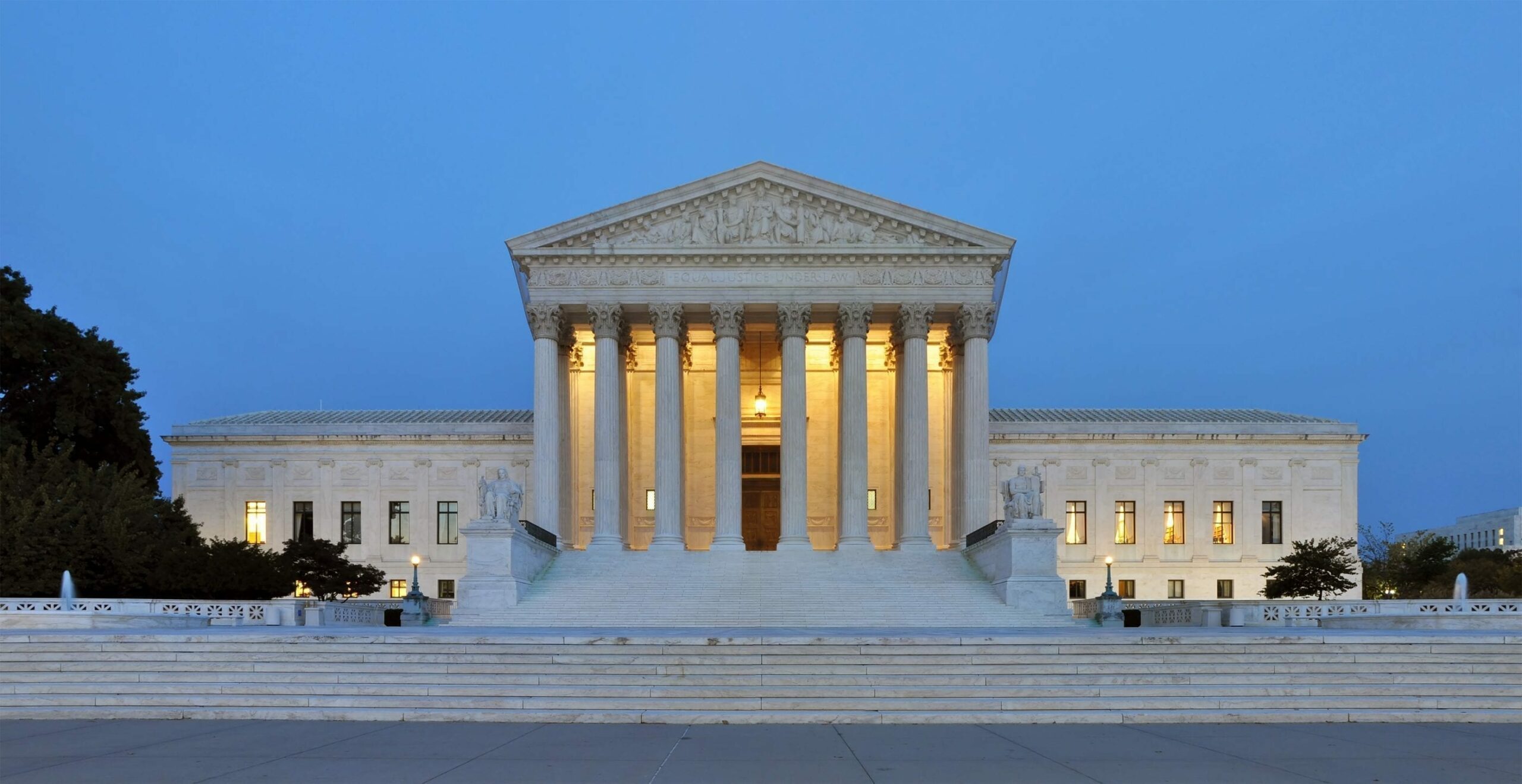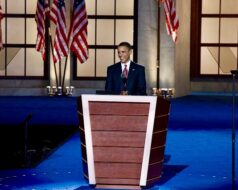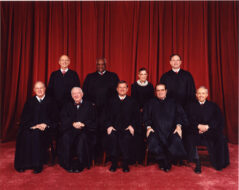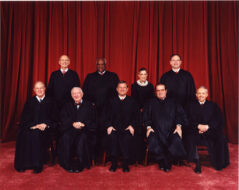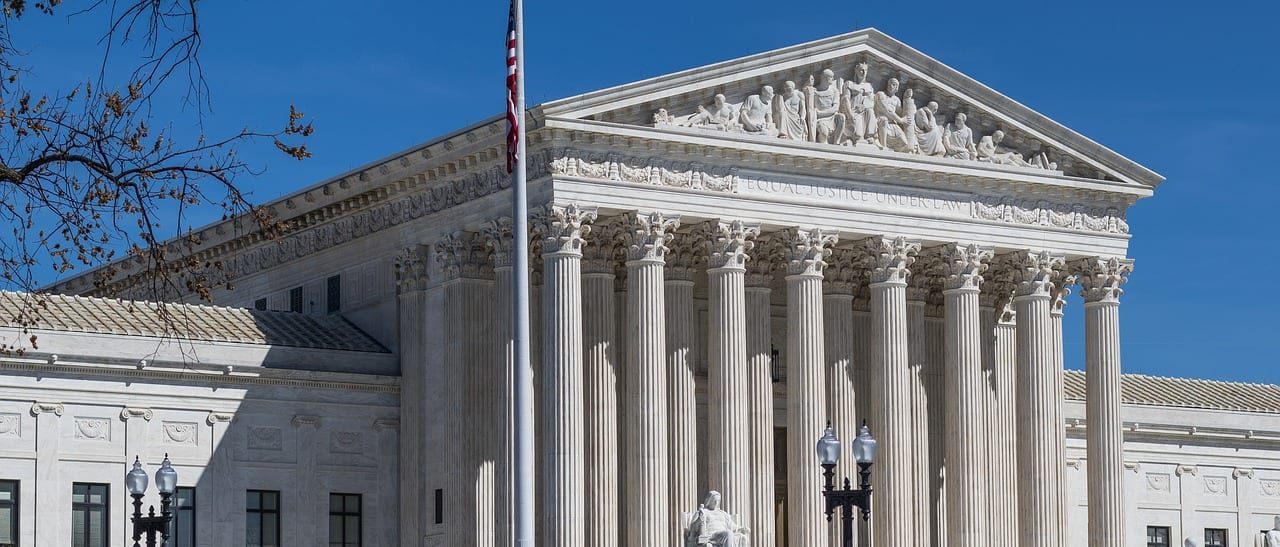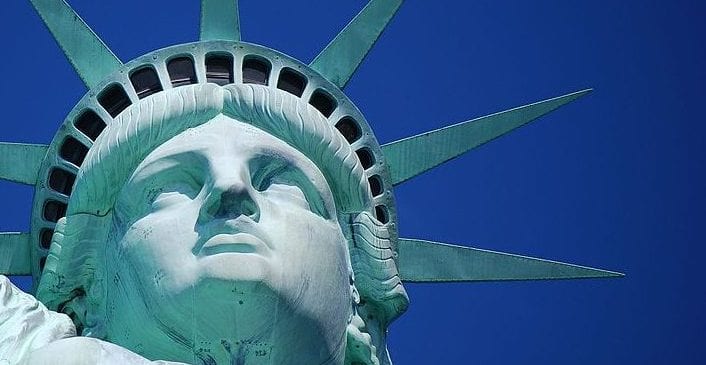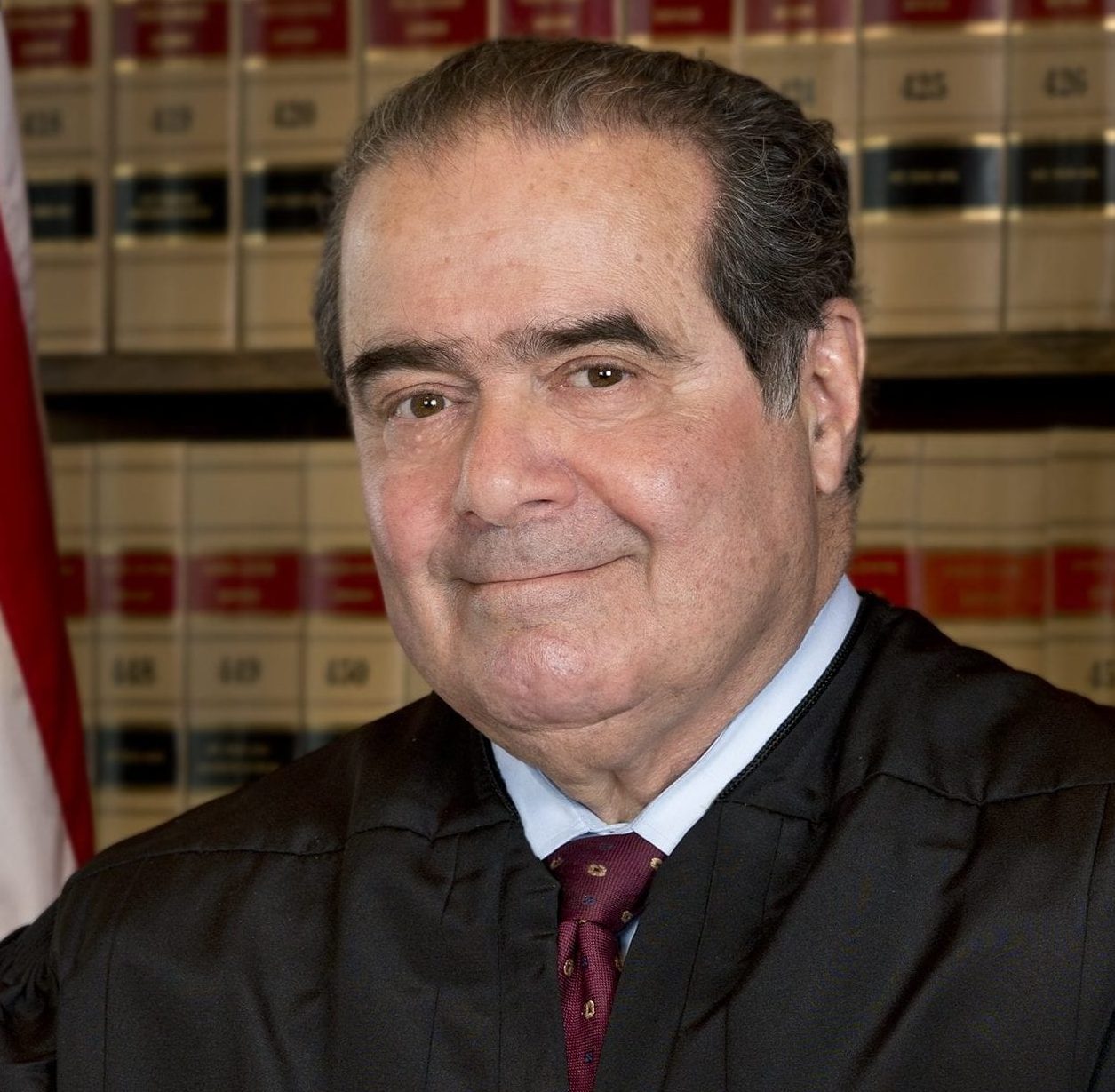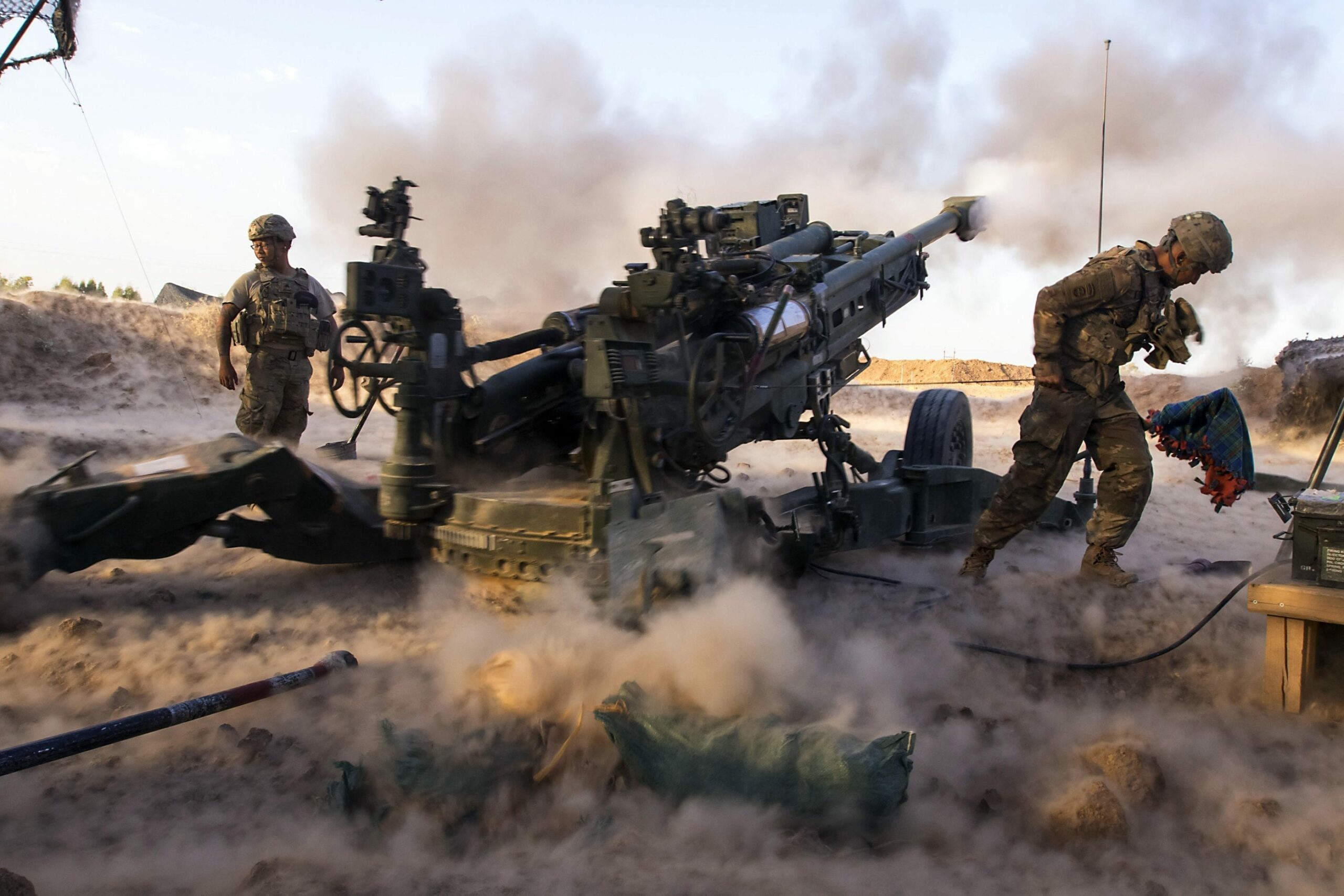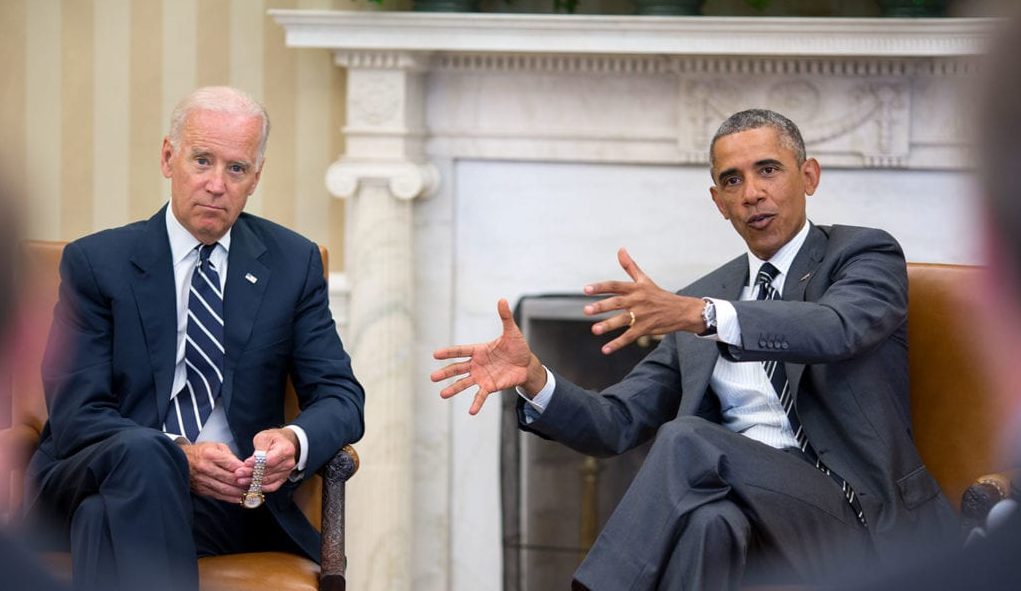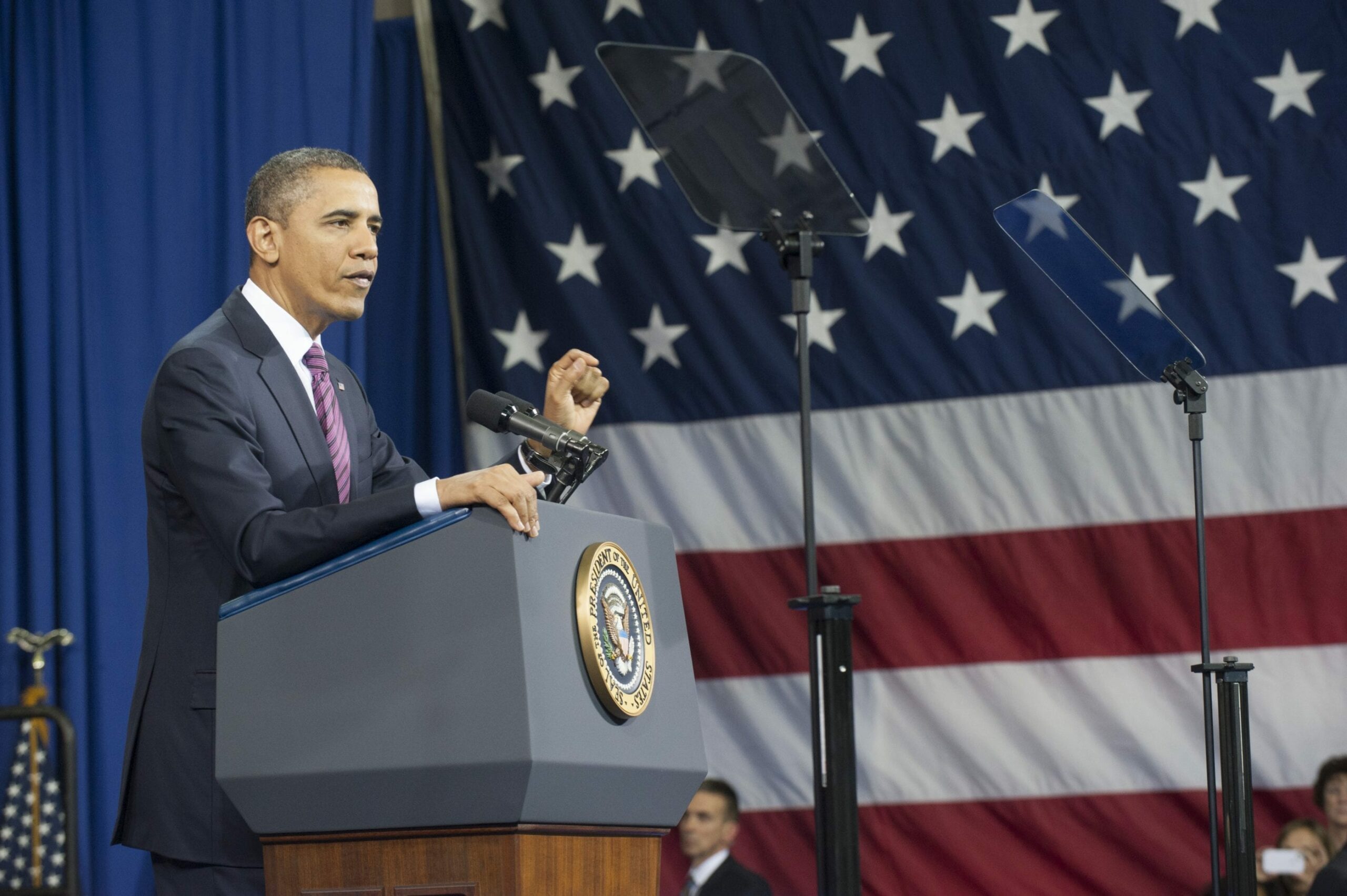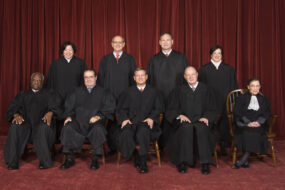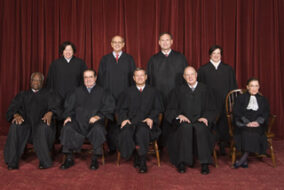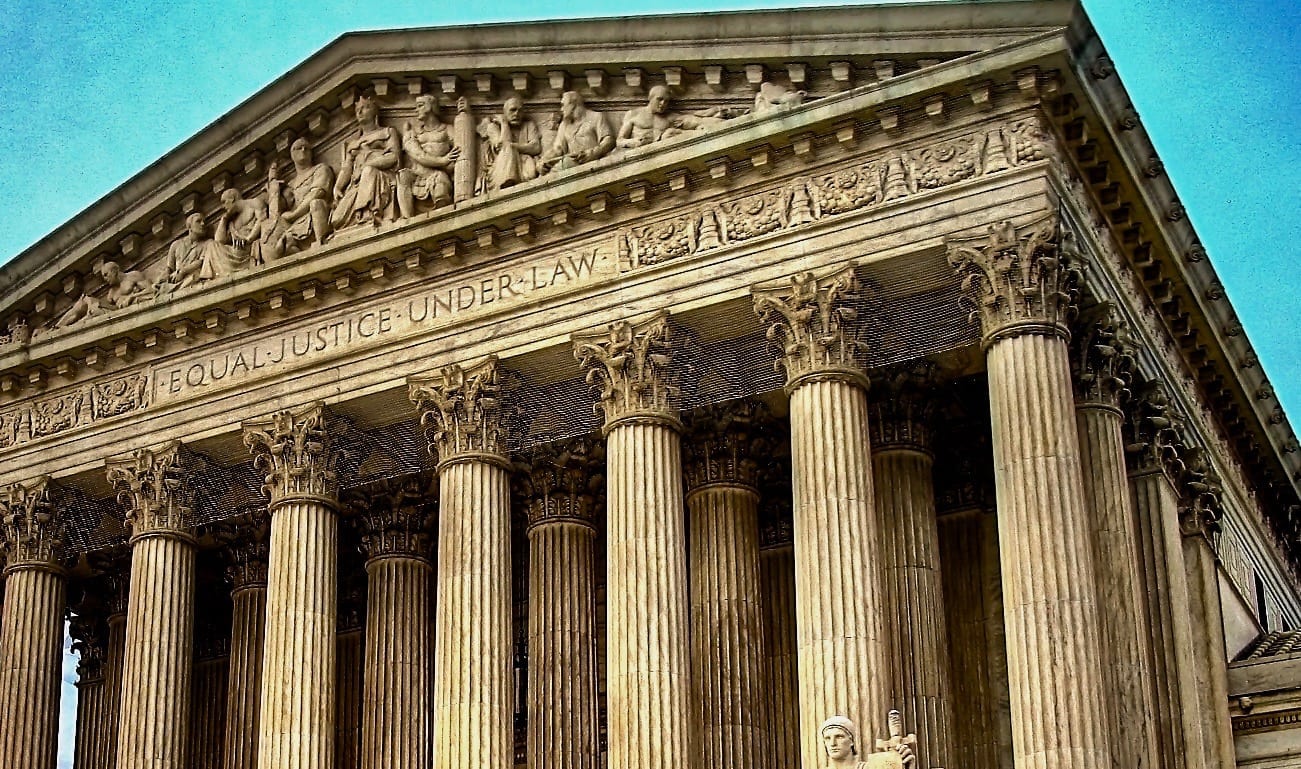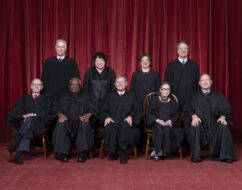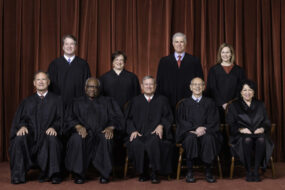

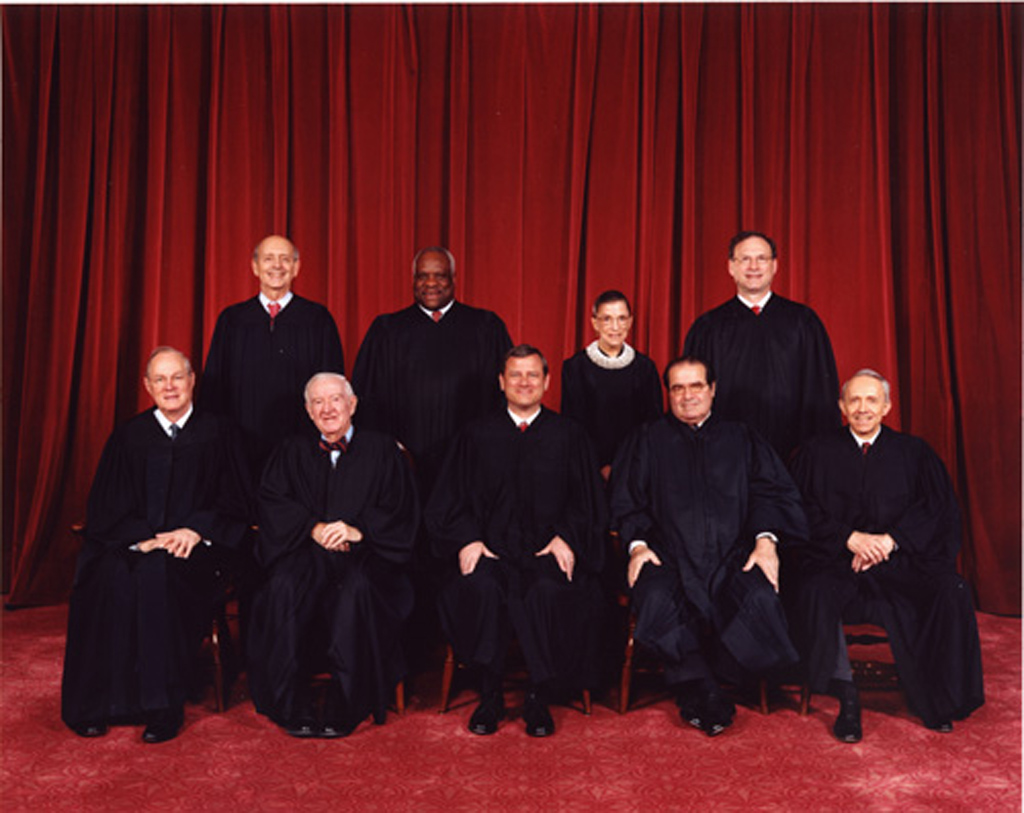
No related resources
Introduction
Lakhdar Boumediene, a Bosnian citizen born in Algeria, was arrested by Bosnian police for a plot to bomb the American embassy in Sarajevo and was being held by the United States at Guantanamo Bay. He was among a number of detainees who challenged their detention by filing for a writ of habeas corpus.
His Supreme Court case is best understood as part of larger negotiation between the Court and the political branches. In Rasul v. Bush (2004), a Supreme Court majority ruled that the detainees at Guantanamo could challenge their detentions in federal court and that they were entitled to some judicial process similar to the tribunals laid out by Congress in its Uniform Code of Military Justice. This was a defeat for George W. Bush who had argued that his detention of suspected terrorists was within Robert Jackson’s first category (Youngstown Sheet & Tube (1952)): Congress had authorized the action with its broad Authorization of the Use of Military Force against the terrorists of September 11th, and the president had authority under Article II of the Constitution. In response to Rasul, Congress passed the Detainee Treatment Act of 2005 (DTA), which seemed to limit judicial authority over the detainees in Guantanamo.
In Hamdan vs. Rumsfeld (2006), however, a divided Court read the DTA narrowly to mean that it did not apply to cases that were already pending. So Congress passed a new law, the Military Commissions Act of 2006, which explicitly stated that the detainees would not be eligible for habeas petitions.
In the opinion below, Justice Kennedy writes for a Court majority holding that the Congress in fact could not pass such a law. Justice Scalia’s dissenting opinion is also included.
Source: United States Reports. Volume 553, Cases Adjudged in the Supreme Court at October Term, 2007 (Washington, D.C.: United States Government Printing Office, 1952), 732-33, 793-95, 796-98, 826-31.
Justice Kennedy[1] delivered the opinion of the Court.
Petitioners are aliens designated as enemy combatants and detained at the United States Naval Station at Guantanamo Bay, Cuba. . . .
Petitioners present a question not resolved by our earlier cases relating to the detention of aliens at Guantanamo: whether they have the constitutional privilege of habeas corpus, a privilege not to be withdrawn except in conformance with the Suspension Clause, Art I, sec. 9, cl. 2. We hold these petitioners do have the habeas corpus privilege. Congress has enacted a statute, the Detainee Treatment Act of 2005 (DTA), 119 Stat. 2739, that provides certain procedures for review of the detainees’ status. We hold that those procedures are not an adequate and effective substitute for habeas corpus. Therefore sec. 7 of the Military Commissions Act of 2006 (MCA), 28 U.S.C. sec. 2241(e), operates as an unconstitutional suspension of the writ. We do not address whether the President has the authority to detain these petitioners nor do we hold that the writ must issue. These and other questions regarding the legality of the detention are to be resolved in the first instance by the District Court. . . .
In light of our conclusion that there is no jurisdictional bar to the District Court’s entertaining petitioners’ claims the question remains whether there are prudential barriers to habeas corpus review under these circumstances.
The Government argues petitioners must seek review of their CSRT [Combatant Status Review Tribunals] determinations in the Court of Appeals before they can proceed with their habeas corpus actions in the District Court. As noted earlier, in other contexts and for prudential reasons this Court has required exhaustion of alternative remedies before a prisoner can seek federal habeas relief. Most of these cases were brought by prisoners in state custody, e.g., Ex parte Royall, 117 U.S. 241, and thus involved federalism concerns that are not relevant here. But we have extended this rule to require defendants in courts-martial to exhaust their military appeals before proceeding with a federal habeas corpus action. See Schlesinger, 420 U.S. at 758.
The real risks, the real threats, of terrorist attacks are constant and not likely soon to abate. The ways to disrupt our life and laws are so many and unforeseen that the Court should not attempt even some general catalogue of crises that might occur. Certain principles are apparent, however. Practical considerations and exigent circumstances inform the definition and reach of the law’s writs, including habeas corpus. The cases and our tradition reflect this precept.
In cases involving foreign citizens detained abroad by the Executive, it likely would be both an impractical and unprecedented extension of judicial power to assume that habeas corpus would be available at the moment the prisoner is taken into custody. If and when habeas corpus jurisdiction applies, as it does in these cases, then proper deference can be accorded to reasonable procedures for screening and initial detention under lawful and proper conditions of confinement and treatment for a reasonable period of time. Domestic exigencies, furthermore, might also impose such onerous burdens on the Government that here, too, the Judicial Branch would be required to devise sensible rules for staying habeas corpus proceedings until the Government can comply with its requirements in a responsible way. Cf. Ex parte Milligan, 4 Wall., at 127 (“If, in foreign invasion or civil war, the courts are actually closed, and it is impossible to administer criminal justice according to law, then, on the theatre of active military operations, where war really prevails, there is a necessity to furnish a substitute for civil authority, thus overthrown, to preserve the safety of the army and society; and as no power is left but the military, it is allowed to govern by martial rule until the laws can have their free course”).[2] Here, as is true with detainees apprehended abroad, a relevant consideration in determining the courts’ role is whether there are suitable alternative processes in place to protect against the arbitrary exercise of governmental power.
The cases before us, however, do not involve detainees who have been held for a short period of time while awaiting their CSRT determinations. Were that the case, or were it probable that the Court of Appeals could complete a prompt review of their applications, the cause for requiring temporary abstention or exhaustion of alternative remedies would be much stronger. These qualifications no longer pertain here. In some of these cases six years have elapsed without the judicial oversight that habeas corpus or an adequate substitute demands. And there has been no showing that the Executive faces such onerous burdens that it cannot respond to habeas corpus actions. To require these detainees to complete DTA review before proceeding with their habeas corpus actions would be to require additional months, if not years, of delay. The first DTA review applications were filed over two years ago, but no decision on the merits have been issued. While some delay in fashioning new procedures is unavoidable, the costs of delay can no longer be borne by those who are held in custody. The detainees in these cases are entitled to a prompt habeas corpus hearing.
Our decision today holds only that petitioners before us are entitled to seek the writ; that the DTA review procedures are an inadequate substitute for habeas corpus; and that petitioners in these cases need not exhaust the review procedures in the Court of Appeals before proceeding with their habeas actions in the District Court. The only law we identify as unconstitutional is MCA sec.7, 28 U.S.C. sec. 2241(e). Accordingly, both the DTA and the CSRT process remain intact. Our holding with regard to exhaustion should not be read to imply that habeas corpus should intervene the moment an enemy combatant steps foot in a territory where the writ runs. The Executive is entitled to a reasonable period of time to determine a detainee’s status before a court entertains that detainees habeas corpus petition. The CRST process is the mechanism Congress and the President set up to deal with these issues. Except in cases of undue delay, federal courts should refrain from entertaining an enemy combatant’s habeas corpus petition at least until after the Department, acting via the CSRT, has had a chance to review his status. . . . In considering both the procedural and substantive standards used to impose detention to prevent acts of terrorism, proper deference must be accorded to the political branches. See United States v. Curtiss-Wright Export Corp., 229 U.S 304, 320 (1936).[3] Unlike the President and some designated members of Congress, neither the Members of this Court not most federal judges begin the day with briefings that may describe new and serious threats to our Nation and its people. The law must accord the Executive substantial authority to apprehend and detain those who pose a real danger to our security.
Officials charged with daily operational responsibility for our security may consider a judicial discourse on the history of the Habeas Corpus Act of 1679 and like matters to be far removed from the Nation’s present, urgent concerns. Established legal doctrine, however, must be consulted for its teaching. Remote it time it may be; irrelevant to the present it is not. Security depends upon a sophisticated intelligence apparatus and the ability of our Armed Forces to act and to interdict. There are further considerations, however. Security subsists, too, in fidelity to freedom’s first principles. Chief among these are freedom from arbitrary and unlawful restraint and the personal liberty that is secured by adherence to the separation of powers. It is from these principles that the judicial authority to consider petitions for habeas corpus relief derives.
Our opinion does not undermine the Executive’s powers as Commander in Chief. On the contrary, the exercise of those powers is vindicated, not eroded, when confirmed by the Judicial Branch. Within the Constitution’s separation-of-powers structure, few exercises of judicial power are as legitimate or necessary as the responsibility to hear challenges to the authority of the Executive to imprison a person. Some of these petitioners have been in custody for six years with no definitive judicial determination as to the legality of their detention. Their access to the writ is a necessity to determine the lawfulness of their status, even if, in the end, they do not obtain the relief they seek.
Because our Nation’s past military conflicts have been of limited duration, it has been possible to leave the outer boundaries of war powers undefined. If, as some fear, terrorism continues to pose dangerous threats to us for years to come, the Court might not have this luxury. This result is not inevitable, however. The political branches, consistent with their independent obligations to interpret and uphold the Constitution, can engage in a genuine debate about how best to preserve constitutional values while protecting the nation from terrorism. Cf. Hamdan, 548 U.S., at 636 (Breyer, J., concurring) (“[J]udicial insistence upon that consultation does not weaken our Nation’s ability to deal with danger. To the contrary, that insistence strengthens the Nation’s ability to determine – through democratic means – how best to do so”).
It bears repeating that our opinion does not address the content of the law that governs petitioners’ detention. That is a matter yet to be determined. We hold that petitioners may invoke the fundamental procedural protections of habeas corpus. The laws and Constitution are designed to survive, and remain in force, in extraordinary times. Liberty and security can be reconciled; and in our system they are reconciled within the framework of the law. The Framers decided that habeas corpus, a right of first importance, must be a part of the framework, a part of that law.
The determination by the Court of Appeals that the Suspension Clause and its protections are inapplicable to petitioners was in error. The judgement of the Court of Appeals is reversed. The cases are remanded to the Court of Appeals with instructions that it remand the cases to the District Court for proceedings consistent with this opinion.
It is so ordered.
Justice Scalia,[4] with whom the Chief Justice,[5] Justice Thomas,[6] and Justice Alito[7] join, dissenting.
Today, for the first time in our Nation’s history, the Court confers the constitutional right to habeas corpus on alien enemies detained abroad by our military forces in the course of an ongoing war. The CHIEF JUSTICE’s dissent, which I join, shows that the procedures prescribed by Congress in the Detainee Treatment Act provide the essential protections that habeas corpus guarantees; there has thus been no suspension of the writ, and no basis exists for judicial intervention beyond what the Act allows. My problem with today’s opinion is more fundamental still: The writ of habeas corpus does not, and never has, run in favor of aliens abroad; the Suspension Clause thus has no application, and the Court’s intervention in this military matter is entirely ultra vires.[8]
I shall devote most of what will be a lengthy opinion to the legal errors contained in the opinion of the Court. Contrary to my usual practice, however, I think it appropriate to begin with a description of the disastrous consequences of what the Court has done today.
I
America is at war with radical Islamists. The enemy began by killing Americans and American allies abroad: 241 at the Marine barracks in Lebanon, 19 at the Khobar Towers in Dhahran, 224 at our embassies in Dar es Salaam and Nairobi, and 17 on the USS Cole in Yemen. See National Commission on Terrorist Attacks Upon the United States, the 9/11 Commission Report, pp. 60-61,70,190 (2004). On September 11, 2001, the enemy brought the battle to American soil, killing 2,749 at the Twin Towers in New York City, 184 at the Pentagon in Washington, D.C., and 40 in Pennsylvania. See id., at 552, n. 188. It has threatened further attacks against our homeland; one need only walk about buttressed and barricaded Washington, or board a plane anywhere in the country, to know that the threat is a serious one. Our Armed Forces are now in the field against the enemy, in Afghanistan and Iraq. Last week, 13 of our countrymen in arms were killed.
The game of bait-and-switch that today’s opinion plays upon the Nation’s Commander in Chief will make the war harder on us. It will almost certainly cause more Americans to be killed. That consequence would be tolerable if necessary to preserve a time-honored legal principle vital to our constitutional Republic. But it is this Court’s blatant abandonment of such a principle that produces the decision today. The President relied on our settled precedent in Johnson v. Eisentrager, 339 U.S. 763 (1950), when he established the prison at Guantanamo Bay for enemy aliens. Citing that case, the President’s Office of Legal Counsel advised him “that the great weight of legal authority indicates that a federal district court could not properly exercise habeas jurisdiction over an alien detained at [Guantanamo Bay].” Memorandum from Patrick F. Philbin and John C. Yoo, Deputy Assistant Attorneys General, Office of Legal Counsel, to William J. Haynes II, General Counsel, Dept. of Defense, p. 1 (Dec 28, 2001). Had the law been otherwise, the military surely would not have transported prisoners there, but would have kept them in Afghanistan, transferred them to another of our foreign military bases, or turned them over to allies for detention. Those other facilities might well have been worse for the detainees themselves.
In the long term, then, the Court’s decision today accomplishes little, except perhaps to reduce the well-being of enemy combatants that the Court ostensibly seeks to protect. In the short term, however, the decision is devastating. At least 30 of those prisoners hitherto released from Guantanamo Bay have returned to the battlefield. See S. Rep. No. 110-90, pt. 7, p. 13 (2007) (minority views of Sens. Kyl, Sessions, Graham, Cornyn, and Coburn) (hereinafter Minority Report). Some have been captured or killed. See ibid,; see also Mintz, Released Detainees Rejoining the Fight, Washington Post, Oct. 22, 2004, pp. A1, A12. But others have succeeded in carrying on their atrocities against innocent civilians. In one case, a detainee released from Guantanamo Bay masterminded the kidnaping of two Chinese dam workers, one of whom was later shot to death when used as a human shield against Pakistani commandos. See Khan & Lancaster, Pakistanis Rescue Hostage; 2nd Dies, Washington Post, Oct. 14, 2004, p. A18. Another former detainee promptly resumed his post as a senior Taliban commander and murdered a United Nations engineer and three Afghan soldiers. Mintz, supra. Still another murdered an Afghan judge. See Minority Report 13. It was reported only last month that a released detainee carried out a suicide bombing against Iraqi soldiers in Mosul, Iraq. See White, Ex-Guantanamo Detainee Joined Iraq Suicide Attack, Washington Post, May 8, 2008, p. A18.
These, mind you, were detainees whom the military had concluded were not enemy combatants. Their return to the kill illustrates the incredible difficulty in assessing who is and who is not an enemy combatant in a foreign theater of operations where the environment does not lend itself to rigorous evidence collection. Astoundingly, the Court today raises the bar, requiring military officials to appear before civilian courts and defend their decisions under procedural and evidentiary rules that go beyond what Congress has specified. As the CHIEF JUSTICE’s dissent makes clear, we have no idea what those procedural and evidentiary rules are, but they will be determined by civil courts and (in the Court’s contemplation at least) will be more detainee-friendly than those now applied, since otherwise there would be no reason to hold the congressionally prescribed procedures unconstitutional. If they impose a higher standard of proof (from foreign battlefields) than the current procedures require, the number of the enemy returned to combat will obviously increase.
But when the military has evidence that it can bring forward, it is often foolhardy to release that evidence to the attorneys representing our enemies. And one escalation of procedures that the Court is clear about is affording the detainees increased access to witnesses (perhaps troops serving in Afghanistan?) and to classified information. See ante, at 783-784. During the 1995 prosecution of Omar Abdel Rahman, federal prosecutors gave the names of 200 unindicted co-conspirators to the “Blind Sheik’s” defense lawyers; that information was in the hands of Osama Bin Laden within two weeks. See Minority Report 14-15. In another case, trial testimony revealed to the enemy that the United States had been monitoring their cellular network, whereupon they promptly stopped using it, enabling more of them to evade capture and continue their atrocities. See id., at 15.
And today it is not just the military that the Court elbows aside. A mere two Terms ago in Hamdan v. Rumsfeld, 548 U.S. 557 (2006), when the Court held (quite amazingly) that the Detainee Treatment Act of 2005 had not stripped habeas jurisdiction over Guantanamo petitioners’ claims, four Members of today’s five-Justice majority joined an opinion saying the following:
Nothing prevents the President from returning to Congress to seek the authority [for trial by military commission] he believes necessary.
Where, as here, no emergency prevents consultation with Congress, judicial insistence upon that consultation does not weaken our Nation’s ability to deal with danger. To the contrary, that insistence strengthens the Nation’s ability to determine – through democratic means – how best to do so. The Constitution places its faith in those democratic means. Id. at 636
(Breyer, J., concurring).
Turns out, they were just kidding. For in response, Congress, at the President’s request, quickly enacted the Military Commissions Act, emphatically reasserting that it did not want these prisoners filing habeas petitions. It is therefore clear that Congress and the Executive – both political branches – have determined that limiting the role of civilian courts in adjudicating whether prisoners captured abroad are properly detained is important to success in the war that some 190,000 of our men and women are now fighting. As the Solicitor General argued, “the Military Commissions Act and the Detainee Treatment Act . . . represent an effort by the political branches to strike an appropriate balance between the need to preserve liberty and the need to accommodate the weighty and sensitive governmental interests in ensuring that those who have in fact fought with the enemy during a war do not return to battle against the United States.” Brief for Federal Respondents 10-11 (internal quotation marks omitted).
But it does not matter. The Court today decrees that no good reason to accept the judgement of the other two branches is “apparent.” Ante, at 769. “The Government,” it declares, “presents no credible arguments that the military mission at Guantanamo would be compromised if habeas corpus courts had jurisdiction to hear the detainees’ claims.” Ibid. What competence does the Court have to second guess the judgement of Congress and the President on such a point? None whatever. But the Court blunders in nonetheless. Henceforth, as today’s opinion makes unnervingly clear, how to handle the enemy prisoners in this war will ultimately lie with the branch that knows least about the national security concerns that the subject entails. . . .
- 1. Anthony Kennedy (1936–) was an Associate Justice of the Supreme Court from 1987 to 2018.
- 2. For an excerpt from this case, see Document 18.
- 3. See Document 25.
- 4. Antonin Scalia (1936–2016) was an Associate Justice of the Supreme Court from 1986 to 2016.
- 5. John G. Roberts (1955–) has been Chief Justice since 2005.
- 6. Clarence Thomas (1948–) has been an Associate Justice since 1991.
- 7. Samuel Alito (1950–) has been an Associate Justice since 2006.
- 8. beyond the scope of its legal authority

Conversation-based seminars for collegial PD, one-day and multi-day seminars, graduate credit seminars (MA degree), online and in-person.



